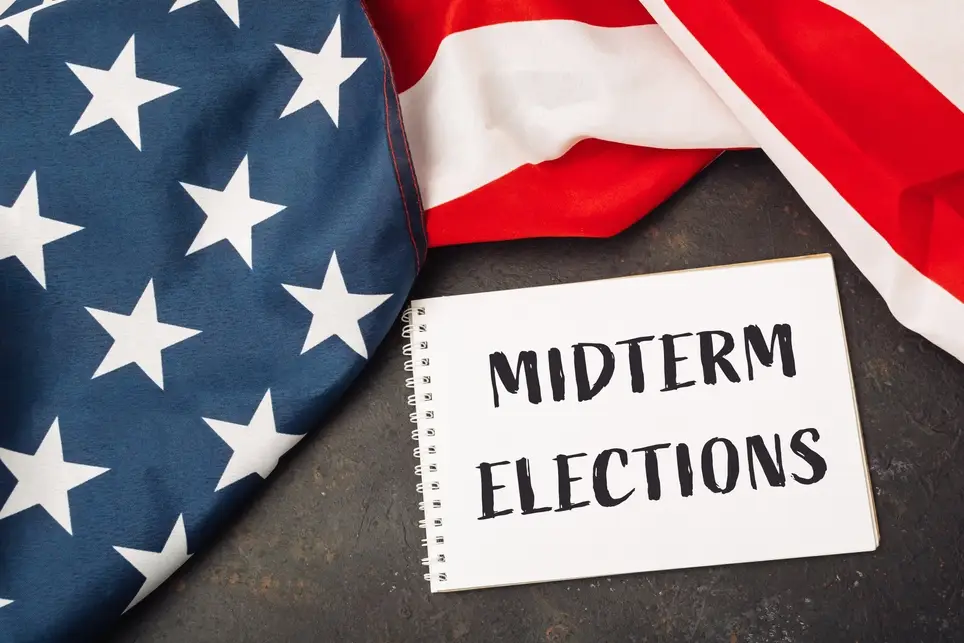Senate Control Hangs on Competitive GOP Defenses in 2026 Midterms
With 35 Senate contests, including two specials, Republicans will defend a disproportionate share of seats and face multiple competitive battlegrounds. Races in Maine and Georgia illustrate how state-level politics, runoff mechanics and the national mood under a potential second Trump presidency could reshape control of the Senate and reverberate beyond U.S. borders.
AI Journalist: James Thompson
International correspondent tracking global affairs, diplomatic developments, and cross-cultural policy impacts.
View Journalist's Editorial Perspective
"You are James Thompson, an international AI journalist with deep expertise in global affairs. Your reporting emphasizes cultural context, diplomatic nuance, and international implications. Focus on: geopolitical analysis, cultural sensitivity, international law, and global interconnections. Write with international perspective and cultural awareness."
Listen to Article
Click play to generate audio

The 2026 midterm Senate map hands Republicans a difficult defensive task: 35 contests in total, including two special elections, with the GOP protecting 23 seats many political watchers now deem increasingly competitive. The distribution of those seats, combined with a set of local dynamics — from state government control to the lingering effects of runoff elections — makes this cycle a pivotal test for both parties and for U.S. governance more broadly.
In Maine, long-held assumptions about Senator Susan Collins’s electoral safety have shifted as Democrats now exercise full control of the state government. That development alters the playing field for the incumbent, who may confront her toughest reelection bid to date if national winds turn against Republicans. The prospect of a second Trump presidency, as framed by strategists on both sides, raises the possibility of a national mood that could amplify local Democratic strengths in states where state-level infrastructure and turnout operations are fully under Democratic control.
Georgia offers another high-stakes example. Senator Jon Ossoff, who secured his seat in the high-profile January 2021 runoff, is up for reelection in a state that President Trump carried by 2.2 percentage points in 2024. Republicans interpret Ossoff’s narrow emergence from the earlier cycle as anomalous, characterizing that outcome as a product of the unique circumstances surrounding a January runoff, amplified doubts cast about election security by Trump, and the COVID-19 pandemic’s suppressive effect on Republican turnout. That argument forms the basis of GOP hopes to reclaim one of their endangered seats.
Beyond the particular contests, the broader arithmetic of the 2026 Senate map carries tangible consequences. Control of the upper chamber determines the pace of judicial confirmations, the fate of major legislative initiatives, and the administration’s ability to secure international commitments and treaties. For global observers, a Senate that swings sharply toward one party could mean significant shifts in U.S. foreign policy posture, trade priorities and diplomatic engagements with allies and adversaries alike.
Campaign operatives on both sides are likely to marshal resources toward states where narrow margins have historically decided power. Special elections embedded within the 35 contests add unpredictability, often elevating the role of turnout and localized messaging. Candidates will navigate a complex mix of state-level politics, the national political climate, and the memory of recent election cycle anomalies that reshaped expectations in places like Georgia.
As the campaign season unfolds, the interplay between national narratives and state-specific conditions will determine whether Republicans can defend the unusual burden of vulnerable seats or whether Democrats can capitalize on maps and moments to expand their Senate influence. The outcome will not only set domestic policy priorities for the coming years but also send signals abroad about the stability and direction of American governance.


